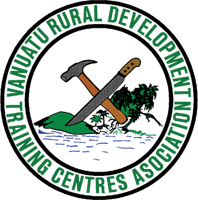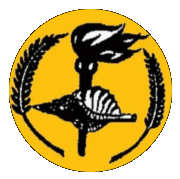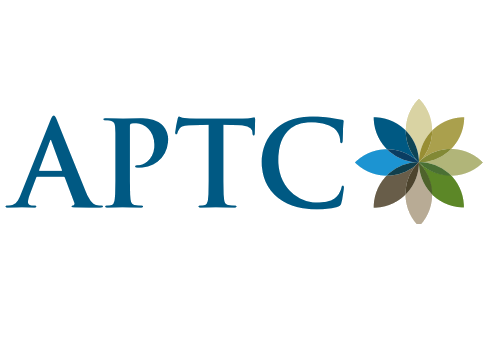Higher education, post-secondary education, tertiary education or third level education is an optional final stage of formal learning that occurs after secondary education. Often delivered at universities, academies, colleges, seminaries, and institutes of technology, higher education is also available through certain college-level institutions, including vocational schools, trade schools, and other career colleges that award academic degrees or professional certifications.
 University of the South Pacific - Emalus Campus
University of the South Pacific - Emalus Campus
The USP Emalus campus is located in Port Vila, the capital of Vanuatu, on Efate island. Throughout the campus you will find traditional tamtams among the beautiful and lush gardens. "Emalus" is a word in the dialect of Erakor village (the village neighbouring campus) meaning 'the place where it always rains'. It is a secure and friendly campus for local and overseas students.
In addition to the main campus based in Port Vila, USP also maintains sub-centres on the islands of Santo, Tanna and Malekula.
The primary academic department on the Emalus campus is the School of Law. The Law School also has in place a scheme for visiting staff and there is a regular flow of overseas academics and other visitors. Courses offered include contract law, criminal law and procedure, international law and environmental law, among others.
The other academic department present on campus is the Centre for Flexible & Distance Learning (CFDL) Section, which promotes and facilitates excellence in learning and teaching in all delivery modes amongst all University staff and students. The Student Learning Support (SLS) Section, the College of Foundation Studies (CFS) Section, the School of Economics, and the School of Education, which are all present at Emalus Campus, operate in conjunction with the CFDL Section to provide academic support to DFL students.
The campus is supported by the Emalus Campus Library, the IT Services department, the Finance section, the Student Academic Support Services (SASS) office, the Campus Life section and the Property and Facilities Department.
 Vanuatu Rural Development and Training Centres Association
Vanuatu Rural Development and Training Centres Association
VRDCTA is a network of vocational based schools designed for young people who have been pushed out of the formal educational system and provides them with training in specific skills to improve the quality of life in rural areas. Oxfam NZ began its partnership with VRDTCA in 2003.
Its mission is to empower school push-outs, youth and interested public through the provision of training in trade and vocational skills enabling self improvement, self-employment, entry into the workforce and development of active leaders and citizens.
Over the past 19 years, VRDTCA has grown from 12 to 40 Rural Training Centres (RTCs). Established under the Foundation for the People of the South Pacific (FSP), VRDTCA became independent of FSP and now works with 40 RTCs across Vanuatu's six provinces to create opportunities for income generation and self reliance.
The general objective of VRDTCA's RTC Policy is to provide training in the skills needed to improve the quality of life in rural and urban areas. The specific objectives are:
- Develop further non-formal programmes with a holistic approach to training and which are needed as preparations for self-employment in the rural/urban sector.
- Meet demands of the increasing numbers entering RTCs
- Ensure a more equal gender balance in RTCs and the provision of follow-up support for graduates.
Vanuatu Rural Development and Training Centres Association (Oxfam NZ)
 Vanuatu Institute of Teacher Education
Vanuatu Institute of Teacher Education
The Vanuatu Institute of Teacher Education (VITE) is a teacher training institution, the only one in Vanuatu. VITE currently offers training in both English and French for the diploma in teaching primary as well as the diploma in teaching secondary. It also offers in-service training under its In-Service Unit.
From its inception in 1962 as a humble trainer of English primary teachers, the original Kawenu Teacher Training College has evolved into what is today the Vanuatu Institute of Teacher Education (or Institut de Formation des Enseignants du Vanuatu in French), providing pre-service training for both primary and secondary teachers in either language of English or French, as well as providing in-service training for current teachers. Its status has changed from that of a college, to that of an institute.
In 2009, the Vanuatu Institute of Teacher Education began a three-year journey of a major reform process called 'Harmonization'. The Harmonization is one of the three strategic pillars of the Vanuatu Education Road Map (VERM) to address quality in education. The primary focus of the Harmonization was to restructure the academic programs of the institute. The Harmonization brought together all the programs and languages to create common course outlines, common assessment policies, common selection and entry procedures, common teaching practice procedures, and a common calendar.
 Australia-Pacific Technical College
Australia-Pacific Technical College
The Australia-Pacific Technical College (APTC) is an Australian Government initiative announced at the Pacific Islands Forum in October 2006 and welcomed by Pacific Island leaders.
The APTC is funded by the Australian Government and managed through the Department of Foreign Affairs and Trade - Australia Aid.
The APTC was designed as a centre of training excellence, helping you to gain Australian-standard skills and qualifications for a wide range of vocational careers throughout the Pacific - careers where skilled employees are in high demand.
The APTC offers Australian Certificate III (and some Certificate IV) training in the following Hospitality and Community Services areas:
- Children's Services
- Community Services
- Hospitality
- Tourism
The APTC offers Australian Certificates III (and some Certificate IV) training in the following Trades and Technology areas:
- Automotive
- Construction
- Electrical
- Engineering
- Plumbing
APTC also offers Australian Diplomas in:
- Children's Services
- Community Services
Courses are delivered by highly regarded and qualified trainers, and when you successfully complete your course you will enjoy the benefits of an accredited Australian qualification.
 Vanuatu Bilingual Higher Studies
Vanuatu Bilingual Higher Studies
Vanuatu Bilingual Higher Studies (VBHS) program is located in Port-Vila nearby the Ministry of Education and Training, on AUF campus.
The courses are offered locally in partnership with regional and international universities under the supervision of the Tertiary Directorate of the Ministry of Education and Training.
Currently, VBHS offers 4 bilingual programs in both English and French:
- Bachelor’s Degree in Administration and Economic Sciences
- Bachelor’s Degree in Tourism and Hospitality
- Master’s Degree in Economics and Social Sciences
- Master’s Degree in Management and Town Planning
The degrees qualifications awarded at the end of the studies are recognized globally through partnerships with international universities: University of New Caledonia, University of Toulouse 1 Capitole, University Toulouse 2 Jean-Jaurès, Victoria University of Wellington, Taylor’s University (Malaysia).
This gives the students the opportunity to eventually continue their study abroad at Masters and PHD levels.
Vanuatu Bilingual Higher Studies

